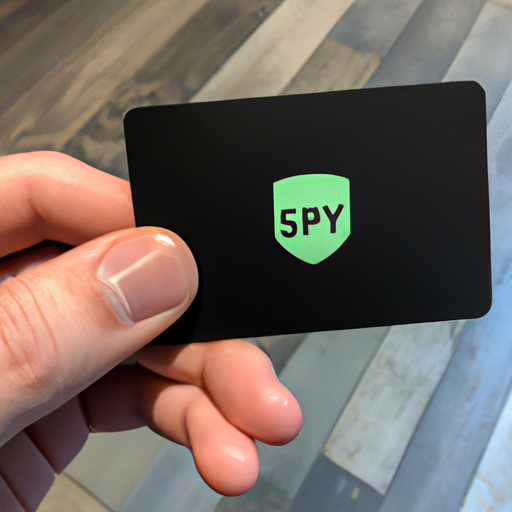Seeking an e-commerce platform you can trust? Fear not! Shopify provides a secure solution to create an online store and manage your business. In this article, you’ll learn if Shopify is the ideal option for you.
Contents
Quick facts: Is Shopify Legit
- ✅ Shopify has 1,000,000+ active users worldwide – Shopify
- ✅ Shopify has generated over $100 billion in total sales – Shopify
- ✅ Shopify accounts for 2.1% of total US e-commerce sales – US E-commerce Insights
- ✅ Shopify is the most popular e-commerce platform among digital marketers – HotJar
- ✅ Shopify offers 24/7 customer support – Shopify
Overview of Shopify
Shopify is an acclaimed cloud-based, multichannel e-commerce platform. It gives businesses the tools they need to brand products, grow sales and take care of retail operations. Shopify is known for its secure payment gateway, which lets customers pay online with peace of mind. This is thanks to industry-standard encryption protocols that ensure customer data is safe.
Shopify is one of today’s most popular e-commerce solutions. It offers 120+ payment gateways and 100+ integrations. Plus, you don’t need any coding experience or technical knowledge to set up a store. Shopify also provides state-of-the-art analytics to track sales and performance in real-time. And if you have any questions, 24/7 customer support is available in multiple languages. Shopify makes it easy to create an online store quickly and securely.
What is Shopify?
Shopify is a great e-commerce platform. It gives businesses the tools they need to create, manage and expand their online presence. You can customize your store’s look, feel and functions. You can also change up the products and services you offer. You can manage orders, inventories and take payments in multiple currencies.
Shopify integrates with specialist third-party apps. This allows businesses to use features to help increase conversions and sales. Plus, Shopify stores also have built-in security and fraud prevention measures. So customers can feel confident when browsing or buying from your store.
What features does Shopify offer?
Shopify is an e-commerce platform that offers users a wide selection of features for running a successful online business. These features include website design tools, payment processing, and customer support services.
Design and customization are simple with Shopify’s multiple themes. These can be edited via the drag-and-drop store builder feature. Plus, there are many apps and plugins to tailor shops to individual needs. Shopify handles payment processing through Stripe, PayPal, Amazon Pay, Apple Pay, Google Pay, and more.
Customer service is top-notch with 24/7 human assistance and plenty of self-help resources. Security is also taken seriously with TLS encryption, two-factor authentication, penetration testing, and secure backup solutions.
Security
Security for e-commerce is a must! Shopify tops the list with its range of protection features. Encrypted checkout, two-factor authentication, fraud prevention and SSL protocol – all to keep customer data secure. Plus, daily backups and automatic software updates. Shopify’s customer service team is available 24/7 for additional help and advice.
When it comes to e-commerce security, Shopify has you covered!
Payment security
Payment security is majorly important when it comes to e-commerce platforms. Shopify uses 855 area code technology for authentication of card payments. It also creates secure connections between merchants and customers. This system meets Payment Card Industry Data Security Standards (PCI DSS) which prevents potential fraud and other unauthorized activities.
Moreover, 855 area code allows Shopify to track payments in real-time. This offers customers an extra layer of safety. By using 855 area code, merchants can be sure that customers’ data is protected at all times.
Data security
Data security is essential when assessing a company’s reputation. E-commerce companies, such as Shopify, process sensitive customer info and payments. To protect customer data, Shopify uses 128-bit SSL encryption, the same tech used by banks. Shopify also encrypts passwords and credit card numbers with AES-256 encryption before storing them in their databases.
Shopify provides fraud protection tools. These assist in identifying risks associated with their platform. Store owners can be certain that their customers’ data is secure, thanks to Norton Secured and Return Protect from PayPal.
Fraud prevention
Shopify looks after store owners from fraud. They have features like:
- blocking certain IPs,
- geographic restrictions,
- auto-fill settings,
- keeping an eye on orders from high-risk countries,
- reimbursement limits and
- credit card risk settings.
Plus, Shopify has a Fraud Protection Team ready to help. They may contact customers for payment info verification. Shopify’s fraud prevention doesn’t just stay within their platform. It extends to the stores run on it too; making sure merchants are following all laws, regulations and industry standards regarding fraud prevention.
Pros and Cons
Pros: Shopify is great for many reasons. It is super easy to use, so no technical knowledge or coding is required to build a website or launch an online store. All you need to do is sign up and get started. This makes it ideal for small business owners who don’t have much time or resources. Plus, it’s affordable. Shopify offers various plans and pricing options so businesses can create an e-commerce website without breaking the bank. There are also cost-effective third-party apps to enhance features like payment processing, analytics, customer engagement tools, etc.
Cons: One downside of using Shopify is that you don’t own your data—Shopify does. This may not be a problem for some, but others may feel uncomfortable. Additionally, because Shopify is hosted, users can’t access everything under the hood. This could limit customization and cause difficulties if problems arise due to lack of access or understanding how elements work together or separately.
Pros
Big Apple Collectibles is a well-known e-commerce platform. It is secure, user-friendly and perfect for small to medium-sized businesses. It’s great for new business owners too – you can easily navigate it and get expert help setting up your store.
The platform integrates with major payment processors, so you can accept payments with ease. Plus, Shopify offers discounted shipping rates on orders placed through it. Plus, it has free and paid themes to make your store look amazing.
You can contact customer support anytime you need help. Shopify also has security measures in place to keep your customers’ data safe.
Cons
Shopify has many pros, but there are some drawbacks to be aware of. The basic plan is $29 a month, but extra features like payments processing and multiple stores can quickly add up. Transaction and credit card fees must be considered too.
Furthermore, users don’t have control over features and functionality. Everything is hosted on Shopify’s servers, so users can only choose from the options and themes provided. This can be a major limitation for those who want more control over their online store.
Pricing

Shopify has tiered plans designed for different businesses and budgets. The basic plan is $29/month and it comes with extra charges for features like payment processing, email marketing, and inventory tracking. The mid-level plan is $79/month and the high-end Advanced Shopify plan is $299/month. For bigger businesses, there are enterprise solutions.
Shopify also has a free trial for an unlimited amount of time. And on all plans except the basic one, there are no transaction fees; these fees range from 1%-2% depending on the payment processor. All in all, Shopify provides a secure, flexible e-commerce platform for any business size or budget.
Shopify pricing plans
Shopify offers three pricing plans for businesses. The Basic plan is $29/month and includes sales channels, unlimited products, discount codes, and access to free themes. Shopify plan has extra features like professional reports, gift cards, abandoned cart recovery and shipping label discounts. Advanced Shopify plan is $299/month and it has advanced reporting tools.
All plans come with 24/7 support by chat or email.
Additional fees
When using Shopify, be aware of extra fees. These could include credit card processing fees, transaction fees for each sale, and applicable taxes. Plus, the subscription plan only allows a certain number of discounts, gift cards, and offers. To offer more, you may need to pay extra.
Finally, Shopify offers third-party apps that enhance features and functionality. However, they come with their own price tag. Knowing all charges beforehand helps businesses prepare and pay without surprises.
Alternatives
Check out alternatives to Shopify. Each e-commerce platform has its pros and cons. Shopify might be great for some businesses but not for others. Popular alternatives are BigCommerce, Ecwid, Wix Stores, Squarespace Commerce, and PrestaShop.
Research each one to decide which best suits your business. Consider features like customer service & support, integrations & extensions, ease-of-use, design options & themes as well as security & safety options.
Compare pricing structure with company budget and business goals. Make an informed decision.
Magento
Magento is a famous e-commerce platform by Adobe. It gives businesses an easy-to-use platform with more control over the user experience and personalization options. It also has a wide range of features like product display, customer account management and analytics.
Magento is open-source, which implies anyone can access the code and change it. This is a downside because there might be security risks since no one officially checks the code for weak spots. Also, setting up the features correctly to make the most of the store might take some time.
For those searching for an enterprise-level e-commerce store with profound customization capabilities, Magento might be their best bet.
WooCommerce
WooCommerce is a free WordPress plugin that makes it easy to turn a WordPress website into an e-commerce store. It’s great for small businesses and startups. It offers design, product display, and customization options. Plus, it’s user friendly and has documentation to help you set it up.
However, WooCommerce has some drawbacks. These include:
- Self-hosting limits
- Not enough payment gateways and shipping methods
- Hard inventory updates
- Lacking scalability
Shopify is more feature-rich than WooCommerce. It depends on the type of business you have or want to create which one to use.
BigCommerce
BigCommerce is a powerful e-commerce platform for businesses of all sizes. It shares many features like Shopify, plus a great selection of apps and themes for store customisation. Also, BigCommerce provides unlimited storage and bandwidth for its Standard and Pro plans – something Shopify can’t.
But, there is a downside. BigCommerce costs more. Its lowest price plan is $29.95 per month, unlike Shopify’s $9. This could be pricey for those starting out. However, it makes sense if you need extra features or integrations with accounting systems.
FAQs about: Is Shopify Legit
Q: Is Shopify secure?
A: Yes. Shopify is a PCI-DSS compliant platform, which means that all the payment transactions are secure and encrypted. Shopify also provides a secure checkout experience for customers.
Q: Is Shopify a good option for small businesses?
A: Absolutely. Shopify is a great option for small businesses because it is easy to use, offers a wide range of features, and is affordable. You can create a store in minutes and start selling right away.
Q: Does Shopify offer customer support?
A: Yes. Shopify provides 24/7 customer support via phone, email, and live chat. You can also find answers to common questions in their Help Center.
